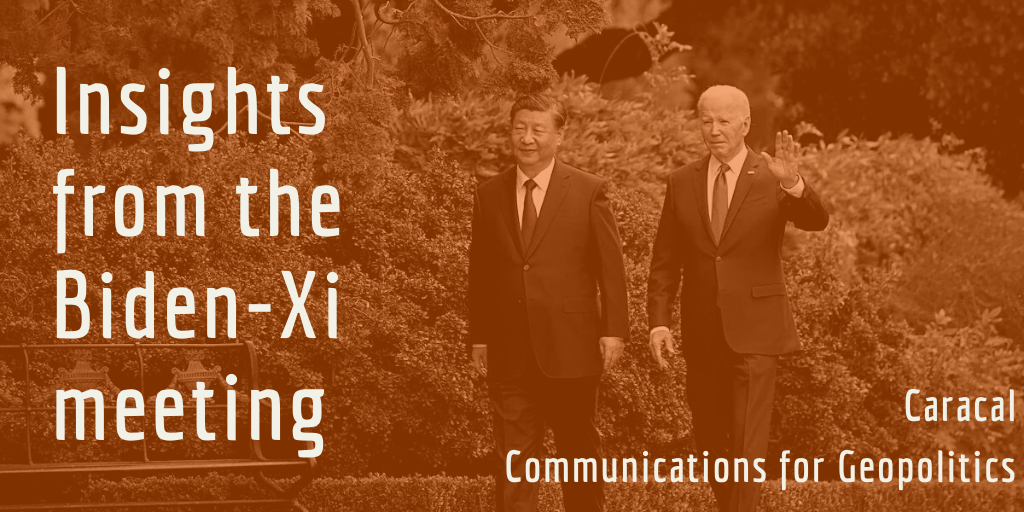In a high-stakes meeting between US President Joe Biden and China's Xi Jinping, the leaders sought to ease tensions between their nations during a diplomatic encounter on the sidelines of the Asia-Pacific Economic Cooperation (APEC) summit.
The meeting came a year after their last face-to-face interaction and aimed to address growing concerns about the potential for military conflict in the Indo-Pacific region.
Despite announcing agreements on confidence-building measures, such as resuming high-level military-to-military (mil-to-mil) communications to avoid miscalculations, Biden openly referred to Xi as a dictator during a press conference.
This candid assessment underscored the increasingly strained relationship between the two global powers and emphasized a recurring theme of Biden's presidency: the global competition between democracy and autocracy.
The Biden administration intentionally set low expectations for the meeting, aiming to restore the bilateral relationship to a point before tensions escalated.
In addition to mil-to-mil communications, the leaders agreed to restart climate talks and address the flow of precursor chemicals from China used in the production of illicit fentanyl.
The leaders also discussed various areas of cooperation, including artificial intelligence, increased flights between the two countries, and expanded people-to-people exchanges in education, business, and culture.
The goal was to demonstrate that the US and China, despite their differences, could work together on shared challenges while managing their competitive relationship.
While expressing the need for collaboration, both leaders acknowledged their differences on matters such as Taiwan, which Xi emphasized as the "most important and sensitive" issue in US-China relations.
The Biden administration has consistently identified China's rise as the most significant geopolitical test of the 21st century. However, critics argue that the administration's focus on conflicts in Gaza and Ukraine has left them needing more preparation to counter China's dominance in Asia.
The meeting reflected the delicate balance between cooperation and competition.
However, the off-the-cuff remark by Biden at the end of a presser, referring to Xi as a dictator, highlighted the fragility of the relationship.
The carefully choreographed meeting aimed to project stability, but this unscripted comment underscored Biden's tensions and genuine feelings toward the Chinese Communist Party's objectives and operations.
As global corporate affairs executives and multinational businesses adapt their supply chains while geopolitical tensions persist, the governments of the US and China face the complex task of balancing cooperation and rivalry in a relationship that has far-reaching implications for the world economy and geopolitical order.
The Biden-Xi meeting marked a significant effort to navigate this delicate balance, with both leaders acknowledging the need for collaboration amid their strategic competition, even with an ad-hoc remark capturing the most attention.
CAP (Communications Action Point) = Biden's impromptu comment after his solo press conference jeopardized the carefully orchestrated diplomatic efforts, highlighting the fragility of US-China relations despite attempts to project stability in the face of upcoming elections in Taiwan and the United States.
Enjoy the ride + plan accordingly
-Marc



